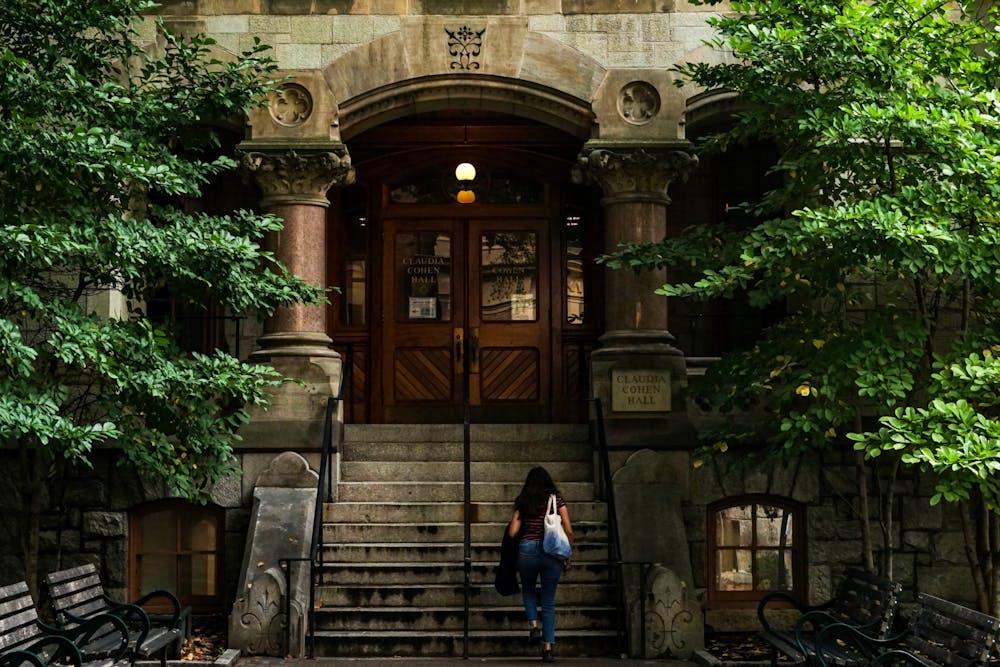It’s time for Legacy admissions to end once and for all. In light of Penn’s recent wording changes to their legacy admissions policy, and yet another year of Penn withholding specific statistics on the newly admitted class of 2027, discussions surrounding legacy admissions have resurfaced throughout the nation and at Penn.
Penn’s recent edits to their policy withdrew a clause that formerly read, “an applicant’s affiliation with Penn, either by being a child or grandchild of alumni, is given the most consideration through Early Decision." By no longer stating this, it seems as though Penn is moving in the direction of eliminating legacy preferences altogether.
Penn is in a position to scrap legacy preference, and this is the right move.
We can all agree that admissions should be “fair,” but what does that fairness look like? I hear this word frequently thrown around in regard to the college admissions process. Is fairness the boost that legacy students receive simply for their parents' hard work? Or is fairness the equity that’s a result of race-conscious admissions, and the recognition that opportunities are not equal for all students?
The American Dream promises equal opportunity to achieve success and the presence of legacy admissions stands in stark contrast to that. If your parents receive a degree from Penn, they likely have the financial means and cultural capital to set you up for success. By investing in standardized test preparation, enrolling in college preparation schools, and nurturing interests like sports or fine arts, Penn alumni are capable of helping their kids stand out as college applicants, and here's the kicker: all these things cost large sums of money.
The cost of participating in certain sports like lacrosse or ice hockey can easily surpass hundreds of dollars in equipment alone. In addition, one of the leading standardized test prep services, Princeton Review, offers SAT tutoring starting at $364 an hour.
I’d like to be clear: I am not upset at legacy students for attending Penn. Attending your parents' alma mater is an accomplishment that shouldn’t be understated. However, on paper, the existence of legacy preference minimizes this achievement. Socially, these preferences further alienate legacy students into receiving criticism about how they got in. Jokes directed at legacy students about how much money their parents donated or what building displays their surname run rampant through campus. Ending legacy preferences would put an end to this, as everyone deserves to feel like they made it here on their own merit.
The preference for legacy students mimics an aristocratic system which favors the family you were born into, rather than one’s own accomplishments. Nepotism, and more specifically the derogatory term 'Nepo baby’ — which emerged late last year as a label for Hollywood stars with famous parents — speaks to how this debate around one's family status transcends discussions of college admissions.
SEE MORE FROM MIA VESELY:
How diversity is valued (or not) in Class of 2026 admissions
New Year, same me: reflection should happen throughout the year
Categorizing stars as ‘self-made’ versus so-called ‘Nepo babies’ is something that is also done in education. However, while many children are receiving backlash for the circumstances they've grown up in, I don’t see that as the right approach.
Everyone deserves to be proud of where they come from and who they are, and if your parents’ Penn degree inspires you to follow in their footsteps, I believe you should. I just don’t believe that it should be a deciding factor in one's admission.
Other high-caliber institutions such as MIT denounce legacy admissions and do not use legacy status at all in applications. As seen on their admissions page, “if you got into MIT, it’s because you got into MIT. Simple as that.” Penn should adopt this method, and evaluate applicants based on them, not their parents' affiliation with the university.
As a first-generation, low-income (FGLI) student, some may say it is easy for me to denounce the value of legacy admissions, but I disagree. Although my personal path navigating college admissions was done without many of the resources I listed above, I hope to provide those resources to my children and believe that every parent that's able to should. If my kids choose to apply to Penn in the future, I want them to be evaluated on themselves and their accomplishments, not mine.
Whether you like it or not, your individual success should not guarantee your kids a place at Penn. They must earn that for themselves. When I graduate from Penn, I will be the first in my family to graduate college in four years. I want my kids to go to college, but no matter how much money I donate or where I received my degree, my kids should be evaluated amongst their peers based on their own merit.

MIA VESELY is a College first year studying philosophy, politics, and economics from Phoenix. Her email is mvesely@sas.upenn.edu.









